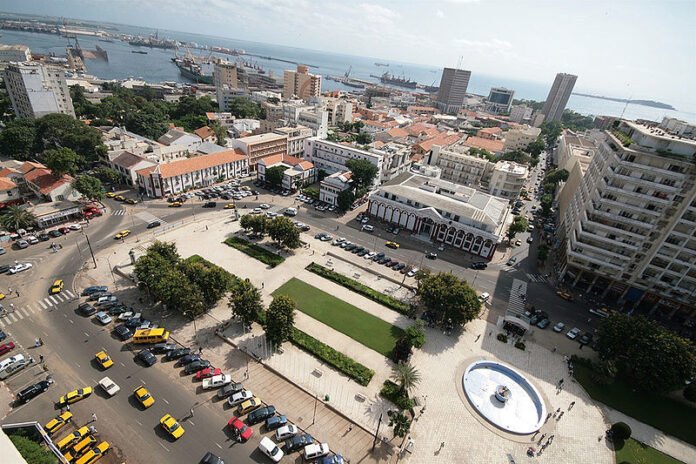Health insurance in Swaziland, officially known as Eswatini, functions through a hybrid system of public schemes and private providers. While the public system aims to provide basic and equitable access to healthcare for all citizens, private insurance targets expatriates and wealthier locals seeking higher-quality or specialized services.
Public Health Insurance: Accessibility and Basic Coverage
Swaziland does not have a universal stand-alone public health insurance scheme. Instead, coverage is achieved through a patchwork of government programs such as the Swaziland National Provident Fund (SNPF), the Universal Health Coverage (UHC) program, and strategic initiatives like the National Health Sector Strategic Plan (NHSSP) 2024–2028. These systems aim to reduce out-of-pocket costs and improve access to essential services for the general population, especially vulnerable groups.
Public schemes typically focus on primary healthcare, maternal and child services, infectious disease control, and immunization, as outlined in the Essential Health Care Package (EHCP). Healthcare is often delivered through government and mission hospitals, supported by donor aid and state subsidies. However, these services are limited in scope and quality, with under-resourced facilities and staffing shortages remaining key challenges. SNPF, for example, primarily covers formal sector employees and offers limited benefits for more serious or specialized treatments.
Private Health Insurance: Comprehensive and Specialized
Private health insurance in Swaziland is more comprehensive and primarily serves expatriates and upper-income locals. International providers like Allianz Care, Cigna Global, AXA, and IMG Global dominate the market, offering plans that include inpatient, outpatient, emergency, mental health, and even medical evacuation—often to neighboring South Africa for advanced care. Local insurers such as United Holdings also provide limited private health coverage tailored to residents.
Private insurance holders gain access to better-equipped facilities such as Mbabane Private Hospital and Manzini Private Hospital, which offer higher standards of care and shorter wait times compared to public hospitals. These plans are particularly valued for their flexibility, customer service, and access to specialist services.
Key Similarities and Differences
Both public and private insurance systems in Swaziland aim to improve healthcare access but serve different segments of the population. A key similarity is their shared goal of expanding coverage and reducing out-of-pocket expenses. Additionally, both systems recognize the need to address the country’s significant health burdens, including HIV/AIDS, tuberculosis, and road traffic injuries.
However, there are notable differences. Public schemes are government-funded or subsidized, targeted at universal coverage, and often free at the point of service. They are constrained by budgetary and infrastructural limitations. In contrast, private insurance is premium-based, offering expansive services and higher quality care but is accessible only to those who can afford it.
Top Public Health Insurance Options in Eswatini (Formerly Swaziland)
Eswatini has a relatively simple public healthcare insurance structure, with the majority of the population accessing services through government-supported programs. Unlike countries with multiple competing public health insurance schemes, Eswatini operates with a centralized system under the Ministry of Health. Here’s a detailed look at the primary public health insurance scheme available in the country:
1. Eswatini National Health System (Publicly Funded Healthcare)(Official Website: https://www.gov.sz/index.php/ministries-departments/ministry-of-health)
Cost:
The National Health System in Eswatini is funded primarily through general taxation and donor support. There are no direct insurance premiums for most citizens. Healthcare services at public facilities are highly subsidized or provided free of charge, especially for vulnerable populations including pregnant women, children under five, the elderly, and those with chronic conditions such as HIV/AIDS or tuberculosis.
Available Services/Coverage Features:
Coverage under the national system includes a wide array of essential health services. These encompass:
- Primary and preventive care (immunizations, maternal health, family planning)
- Outpatient and inpatient services at public hospitals and clinics
- Emergency care
- HIV/AIDS testing, treatment, and counseling
- Tuberculosis diagnosis and treatment
- Malaria prevention and treatment programs
- Mental health services (although still under-resourced)
However, access to specialized treatments and advanced diagnostics may be limited due to resource constraints.
Open for All or Limited:
The National Health System is universally available to all citizens and legal residents of Eswatini. There is no enrollment process or eligibility restriction based on employment status or income. Foreign nationals can also access public healthcare, although non-residents may be charged higher service fees.
Core Financial Features:
The government allocates a portion of its national budget toward health, with additional funding from international organizations such as WHO, Global Fund, and PEPFAR. Patients may be charged minimal out-of-pocket fees for consultations or medications at public hospitals, but these are typically nominal. Due to fiscal limitations, public hospitals may experience shortages of medications and medical equipment, requiring patients to sometimes buy supplies from private pharmacies.
Consumer Satisfaction Score:
Consumer satisfaction with Eswatini’s public health system varies depending on region and service type. In urban areas, satisfaction is moderate to high due to better-equipped facilities. In rural regions, however, satisfaction tends to be lower due to:
- Long waiting times
- Limited availability of specialized medical staff
- Occasional drug shortages
Overall, the estimated consumer satisfaction score is 65 out of 100, with the government actively seeking improvements through health system strengthening initiatives and infrastructure upgrades.
Top Private Health Insurances in Eswatini (Swaziland)
While Eswatini’s public healthcare system covers basic health needs, many residents, especially expats and affluent locals, turn to private health insurance for better access to quality care and specialized treatments. The private health insurance market in Eswatini is relatively small but includes a mix of local and international providers. Below is a detailed overview of the top private health insurance options available:
1. Allianz Care(Official Website: https://www.allianzcare.com/en.html)
Cost:
Premiums vary depending on plan type and coverage level but typically range from $300 to $1,200 per year for individuals, with family plans costing more.
Available Services/Coverage Features:
- Inpatient and outpatient care
- Specialist consultations
- Emergency evacuation and repatriation (often to South Africa)
- Maternity and newborn care
- Prescription drugs
- Mental health services
- Preventive care and wellness programs
Open for All or Limited:
Available for expats, locals, and corporate clients. Plans can be tailored to individual or group needs.
Core Financial Features:
Offers a range of deductible options, co-pay structures, and co-insurance plans. Cashless hospital network available through partner hospitals across Eswatini and neighboring countries.
Consumer Satisfaction Score:
Highly rated for international coverage and claims processing; score around 80/100.
2. Cigna Global(Official Website: https://www.cignaglobal.com/)
Cost:
Annual premiums typically start at approximately $400, depending on coverage options and age.
Available Services/Coverage Features:
- Comprehensive inpatient and outpatient coverage
- Access to private hospitals and specialists
- Emergency medical evacuation
- Wellness benefits, including mental health support
- Flexible plans allowing add-ons such as dental and optical care
Open for All or Limited:
Primarily targets expatriates but available to local individuals and families.
Core Financial Features:
Offers customizable deductibles and co-payments, with a global network of providers and cashless treatment options.
Consumer Satisfaction Score:
Renowned for customer service and flexibility; satisfaction score of about 78/100.
3. AXA(Official Website: https://www.axaglobalhealthcare.com/en/)
Cost:
Premiums generally range from $350 to $1,000 annually, depending on plan details.
Available Services/Coverage Features:
- Hospitalization and specialist visits
- Outpatient diagnostics and treatment
- Emergency services and evacuation
- Preventive and maternity care
- Chronic disease management
Open for All or Limited:
Available to individuals, families, and corporate clients in Eswatini.
Core Financial Features:
Offers a variety of plans with different excess and co-insurance options, with access to a broad hospital network.
Consumer Satisfaction Score:
Good reputation for claims turnaround and service quality; score around 75/100.
4. IMG Global(Official Website: https://www.imglobal.com/)
Cost:
Premiums start at approximately $300 per year, increasing with age and coverage extent.
Available Services/Coverage Features:
- Emergency evacuation and repatriation
- Hospitalization, outpatient, and specialist care
- Prescription medications
- Mental health and wellness programs
Open for All or Limited:
Primarily for expats but open to residents needing international-level coverage.
Core Financial Features:
Flexible plans with optional deductibles and co-pays; cashless access to partner providers globally.
Consumer Satisfaction Score:
Positive reviews for emergency services and global reach; score approximately 77/100.
5. United Holdings (Local Provider)(Official Website: https://united.co.sz/)
Cost:
Generally more affordable, with premiums starting around $200 annually.
Available Services/Coverage Features:
- Basic inpatient and outpatient care
- Limited specialist consultations
- Local hospital network coverage
- Some chronic condition management
Open for All or Limited:
Primarily available to residents of Eswatini, including local individuals and small businesses.
Core Financial Features:
Lower premiums with higher co-pays and limited coverage scope compared to international insurers.
Consumer Satisfaction Score:
Moderate satisfaction due to affordability but limited benefits; score about 65/100.
READ MORE: Private and public health insurance of Egypt (Make informed choices)


